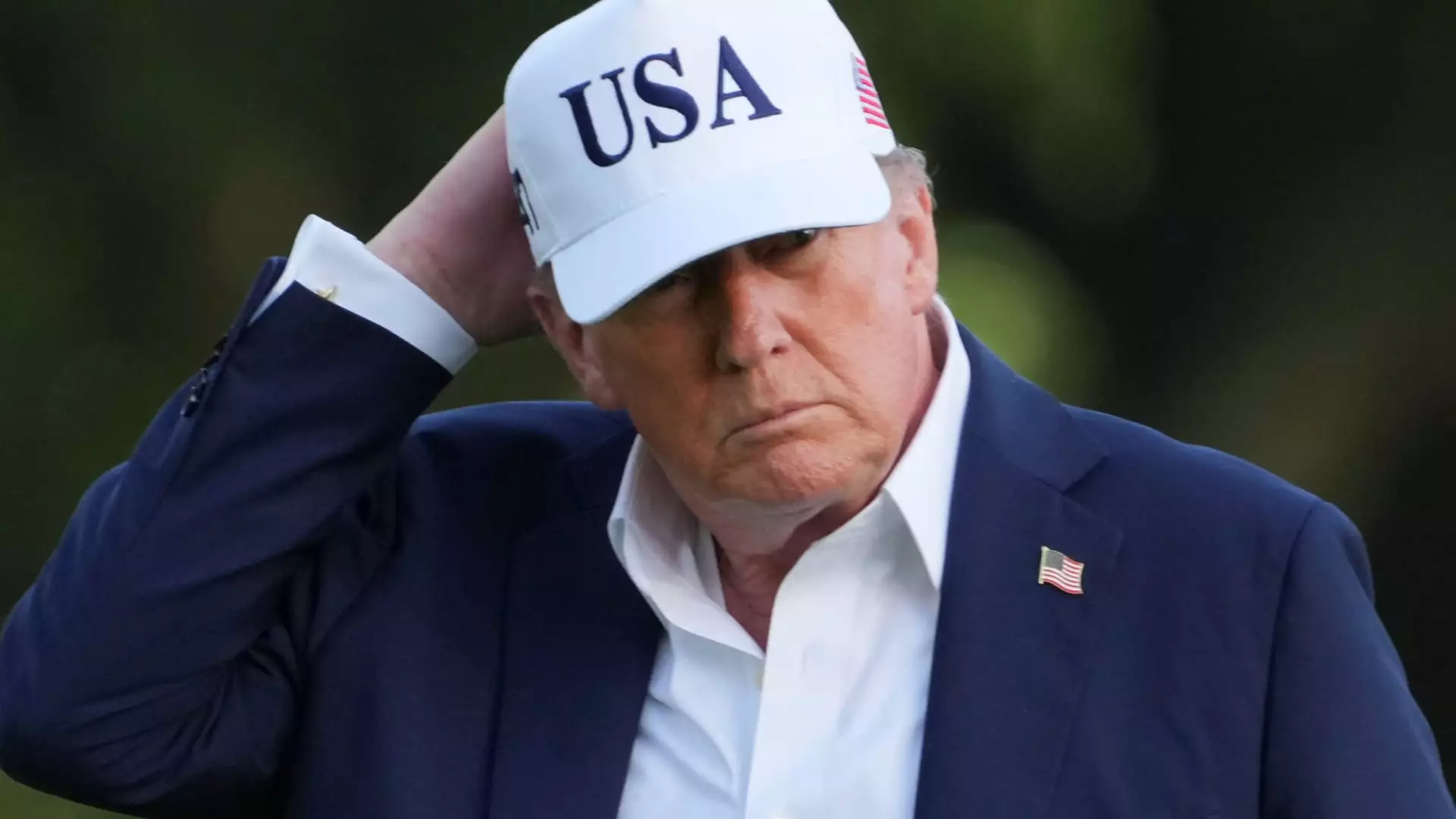The recent announcement by President Donald Trump of imposing a sweeping 25% tariff on imports from Japan and South Korea signals a brazen and confrontational shift in U.S. trade policy. While aimed ostensibly at reducing trade deficits, this tactic echoes a lack of nuanced understanding of global economics and diplomatic relationships. Instead of fostering cooperation or mutual benefit, these tariffs appear to threaten to ignite trade conflicts that could have far-reaching consequences for both domestic consumers and international relations.
This move reveals a troubling tendency towards protecionism driven by a narrow focus on aggregate trade deficits. The decision to rapidly escalate tariffs without sufficient consultation or regard for the nuanced realities of global supply chains demonstrates a fundamental misunderstanding of the interconnected economy. Imposing such unilateral tariffs risks alienating key allies, provoking retaliatory measures, and ultimately destabilizing the very markets that Americans rely on for affordable goods and economic growth.
Economic Illiteracy and the Myth of Trade Deficits
Beneath the surface of this aggressive stance lies a flawed belief that trade deficits are inherently damaging, an assumption that has long been challenged by economists and trade experts. While the deficit figures—$68.5 billion with Japan and $66 billion with South Korea—are significant, they do not necessarily indicate unfairness or weakness. These figures reflect complex, globalized production and consumption patterns, not necessarily indicators of economic inferiority or the need for punitive tariffs.
The idea that tariffs are an effective weapon to “correct” deficits oversimplifies global economic dynamics. In fact, targeting specific countries with punitive measures on the mistaken premise of unfairness often results in the opposite effect—driving up prices for consumers, disrupting supply chains, and risking retaliation that can harm U.S. exports. The assumption that the U.S. can or should unilaterally dictate trade balances overlooks the reality that trade deficits are often the result of structural and strategic factors, rather than unfair trade practices.
The Danger of Tariffs as a Political Tool
The issuance of formal letters warning Japan and South Korea against retaliatory tariffs reveals a mindset rooted in tension and brinkmanship. Such threats and ultimatums are rarely productive in fostering constructive trade relationships. Instead, they foment antagonism that could spill over into broader diplomatic conflicts, eroding trust and cooperation on a host of other issues.
Moreover, the emphasis on “transshipped goods” to evade tariffs underscores a focus on enforcement and punishment rather than addressing the underlying economic relationships. This approach risks encouraging a climate of suspicion and defensive trade strategies that may hinder long-term collaboration. It is particularly concerning that the tariffs are portrayed as a “corrective” measure, ignoring the complexities of global supply chains where intermediate goods cross multiple borders before reaching the U.S.
The Short-sightedness of the Protective Tariff Strategy
Implementing such high tariffs under the guise of “stopping unfair practices” demonstrates a shortsighted view of American economic leadership. The risks extend beyond immediate market fluctuations; these tariffs threaten to undermine America’s credibility as a proponent of free trade and open markets—values that underpin much of its economic prosperity.
Additionally, the reliance on tariffs as a stick instead of engaging in genuine negotiations disregards the importance of diplomacy and multilateral cooperation. It risks turning trade disputes into open conflicts, which ultimately harms American workers and consumers by raising costs and reducing choices. The message that the U.S. might modify tariffs depending on bilateral relationships is indicative of a policy based on volatility rather than strategic consistency. Such uncertainty discourages investment and long-term planning—both vital for sustainable economic growth.
Closing Thoughts: A Reckless Approach in a Fragile Global Economy
The decision to reimpose high tariffs on key allies without substantive negotiations highlights a dangerous readiness to destabilize instead of build. In an era of globalized supply chains, complex geopolitical considerations, and mutual interdependence, the approach of unilateral punitive tariffs is not just naive—it’s reckless. It risks alienating allies, raising prices for consumers, and diminishing America’s global standing. If the goal is to foster a resilient, fair, and prosperous economy, policymakers must abandon the simplistic notions of trade deficits and tariffs as tools for economic correction. Instead, they should embrace diplomacy, cooperation, and strategic engagement—values that are essential for long-term growth and stability in an increasingly interconnected world.



Leave a Reply